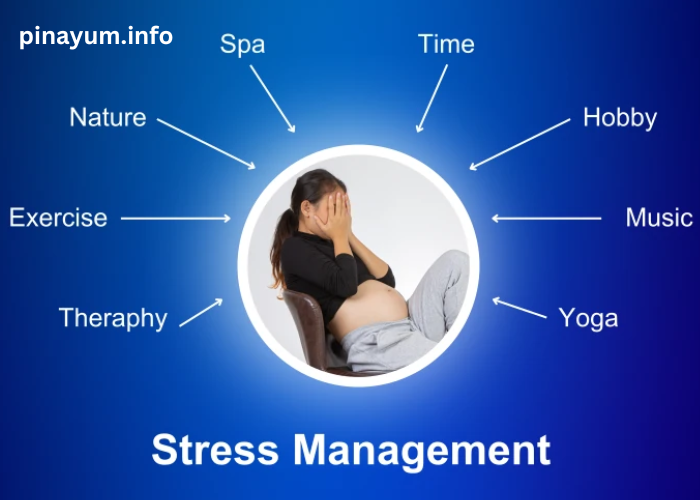In today’s fast-paced world, mental clarity is often a rare and valuable commodity. With constant distractions, work pressures, and the overwhelming nature of modern life, it’s no surprise that many of us struggle to focus, think clearly, and make decisions with confidence. Mental clarity doesn’t just improve productivity; it also enhances overall well-being, reduces stress, and helps you to navigate daily challenges more effectively.
Fortunately, achieving and maintaining mental clarity doesn’t require drastic lifestyle changes or complicated strategies. By incorporating simple habits into your daily routine, you can cultivate a clearer mind and a more focused life. In this article, we will explore several habits that can help you boost your mental clarity, from managing stress to creating a focused environment.
1. Prioritize Sleep for Optimal Brain Function
Sleep is often overlooked, yet it is one of the most powerful tools for achieving mental clarity. Our brains need sufficient rest to process information, consolidate memories, and rejuvenate for the day ahead. Poor sleep, on the other hand, can lead to brain fog, irritability, and difficulty concentrating, all of which impede mental clarity.
Why Sleep Matters:
- Memory Consolidation: During sleep, the brain processes and stores information gathered throughout the day, allowing you to retain and recall details more easily.
- Cognitive Performance: Lack of sleep affects your cognitive functions, including attention, problem-solving, and decision-making.
- Mood Regulation: Sleep influences your emotional health, and inadequate rest can lead to stress, anxiety, and depression, which in turn negatively impact mental clarity.
Sleep Tips for Better Clarity:
- Set a Consistent Sleep Schedule: Go to bed and wake up at the same time each day, even on weekends, to regulate your body’s internal clock.
- Create a Sleep-Friendly Environment: Ensure your bedroom is dark, quiet, and cool. Consider using blackout curtains or white noise machines if necessary.
- Limit Screen Time Before Bed: The blue light emitted by screens can interfere with your body’s natural sleep cycle. Avoid electronic devices at least an hour before bedtime.
By prioritizing sleep, you give your brain the rest it needs to perform at its best, resulting in improved clarity and focus throughout the day.
2. Practice Mindfulness and Meditation
Mindfulness and meditation have been proven to have numerous benefits for mental clarity. These practices involve staying present in the moment and clearing your mind of unnecessary distractions, allowing you to focus on what truly matters. Meditation, in particular, helps to train the brain to focus, calm down, and gain insight into your thoughts and emotions.
Benefits of Mindfulness and Meditation:
- Reduced Stress: Mindfulness reduces the levels of cortisol, the stress hormone, in the body, leading to a calmer and clearer mind.
- Improved Focus: Regular meditation trains the brain to concentrate better, allowing you to stay on task and reduce mental clutter.
- Increased Emotional Intelligence: Mindfulness helps you become more aware of your emotions, leading to improved decision-making and emotional regulation.
How to Incorporate Mindfulness into Your Routine:
- Start with Short Sessions: If you’re new to meditation, start with just five minutes a day. Gradually increase the duration as you become more comfortable.
- Focus on Your Breath: A simple way to practice mindfulness is by focusing on your breath. Take deep, slow breaths and bring your awareness to each inhale and exhale.
- Practice Throughout the Day: You can incorporate mindfulness in everyday activities like walking, eating, or even during conversations. Simply pay attention to the present moment without distractions.
By making mindfulness and meditation a daily practice, you can significantly enhance your mental clarity and emotional well-being.
3. Exercise Regularly to Boost Brain Health
Exercise is not only great for physical health but also plays a crucial role in enhancing mental clarity. Regular physical activity increases blood flow to the brain, helping to deliver oxygen and nutrients that improve cognitive function and focus. Additionally, exercise stimulates the production of endorphins, the body’s natural “feel-good” hormones, which can help you feel more positive and clear-headed.
How Exercise Improves Mental Clarity:
- Increased Blood Flow: Exercise promotes healthy blood circulation, which helps supply the brain with the oxygen it needs for optimal function.
- Improved Mood and Reduced Anxiety: Physical activity is an effective way to manage anxiety and depression, both of which can cloud your thoughts and reduce mental clarity.
- Enhanced Cognitive Function: Regular exercise improves memory, attention, and overall cognitive performance.
Exercise Tips for Mental Clarity:
- Aim for Consistency: Aim to exercise for at least 30 minutes most days of the week. This can include anything from walking and cycling to yoga or strength training.
- Choose Activities You Enjoy: Find activities that you enjoy, as you’ll be more likely to stick with them. Whether it’s dancing, hiking, or swimming, make exercise something you look forward to.
- Incorporate Movement into Your Day: If you find it hard to set aside time for exercise, try incorporating more movement into your daily routine, such as taking the stairs or walking during phone calls.
Regular exercise helps clear mental fog, reduce stress, and boost cognitive function, making it an essential habit for improving mental clarity.
4. Declutter Your Environment for a Clearer Mind
Clutter can contribute to mental chaos, making it harder to concentrate and stay organized. A cluttered environment creates distractions, increases stress, and can even make you feel overwhelmed. By keeping your surroundings clean and organized, you create a more peaceful and productive space that fosters mental clarity.
How Clutter Affects Mental Clarity:
- Increased Stress: Studies show that a messy environment can increase cortisol levels, leading to higher stress and anxiety.
- Difficulty Focusing: A cluttered space can make it difficult to focus on tasks, as your attention is constantly drawn to the mess around you.
- Reduced Productivity: The time spent searching for things in a cluttered environment can reduce productivity and contribute to a sense of being disorganized.
Decluttering Tips:
- Tidy Up Regularly: Make it a habit to clean and organize your space daily, or at least weekly. Keep only the items that are necessary or bring you joy.
- Create a Minimalist Workspace: For better productivity, keep your workspace clean and free from distractions. A tidy desk promotes focus and efficiency.
- Use Organizational Tools: Invest in storage solutions such as baskets, shelves, or filing cabinets to keep things organized and easily accessible.
A clutter-free environment leads to a calmer mind, allowing you to focus on tasks and make decisions with greater clarity.
5. Adopt a Balanced Diet to Fuel Your Brain
What you eat plays a crucial role in how your brain functions. A poor diet can lead to brain fog, fatigue, and difficulty focusing, while a balanced, nutrient-dense diet helps to fuel your brain, keeping you sharp and alert. Certain foods are known to promote brain health and support mental clarity.
Brain-Boosting Foods:
- Omega-3 Fatty Acids: Found in fatty fish like salmon and walnuts, omega-3 fatty acids are essential for brain health and can improve cognitive function.
- Leafy Greens: Vegetables like spinach, kale, and broccoli are rich in vitamins and minerals that promote mental clarity and memory.
- Whole Grains: Whole grains like oats, quinoa, and brown rice provide sustained energy to the brain, preventing mental fatigue.
- Berries and Antioxidants: Berries, nuts, and seeds are rich in antioxidants, which protect the brain from oxidative stress and improve memory and focus.
Diet Tips for Mental Clarity:
- Eat Balanced Meals: Focus on a diet that includes a variety of whole foods, such as lean proteins, healthy fats, and fresh fruits and vegetables.
- Stay Hydrated: Dehydration can impair brain function, so make sure you drink enough water throughout the day to stay sharp.
- Limit Sugar and Processed Foods: High sugar intake and processed foods can cause energy crashes and affect cognitive function. Try to limit your consumption of these foods.
Eating a well-rounded, brain-boosting diet will fuel your mind, improve focus, and enhance mental clarity.
6. Set Clear Goals and Prioritize Tasks
Mental clarity thrives when you have a clear sense of purpose and direction. When you’re unclear about your goals or overwhelmed by a long to-do list, it’s easy to feel scattered and unfocused. Setting clear goals and prioritizing tasks helps you organize your thoughts and stay on track.
How Goal Setting Enhances Clarity:
- Increased Focus: Having a clear goal helps you stay focused on what matters and eliminates distractions.
- Motivation: Clear goals give you something to work towards, motivating you to stay on task and complete your work.
- Stress Reduction: Prioritizing tasks reduces the feeling of being overwhelmed and helps you tackle tasks one step at a time.
Goal-Setting Tips:
- Use the SMART Framework: Set goals that are Specific, Measurable, Achievable, Relevant, and Time-bound. This framework ensures your goals are clear and realistic.
- Break Down Large Tasks: Break big goals into smaller, manageable tasks to avoid feeling overwhelmed.
- Review Your Goals Regularly: Check in with your goals regularly to track progress and adjust your approach as needed.
Clear goals and task prioritization bring structure to your day and help you maintain focus and mental clarity.
Conclusion: Achieving Mental Clarity Through Simple Habits
Achieving mental clarity is an ongoing process that requires consistent effort. By prioritizing sleep, practicing mindfulness, exercising regularly, decluttering your environment, eating a brain-boosting diet, and setting clear goals, you can create a mental environment conducive to focus and clarity. These simple habits, when integrated into your daily routine, can help you navigate the challenges of modern life with confidence, purpose, and clarity. Embrace these strategies, and start experiencing the benefits of a clearer mind today!





